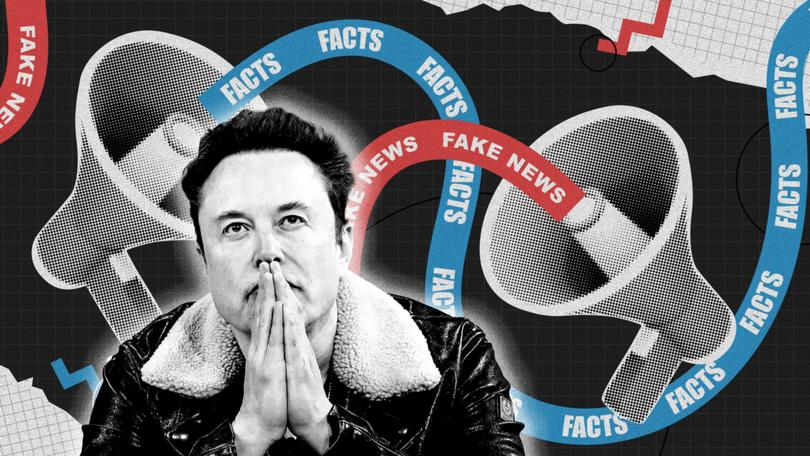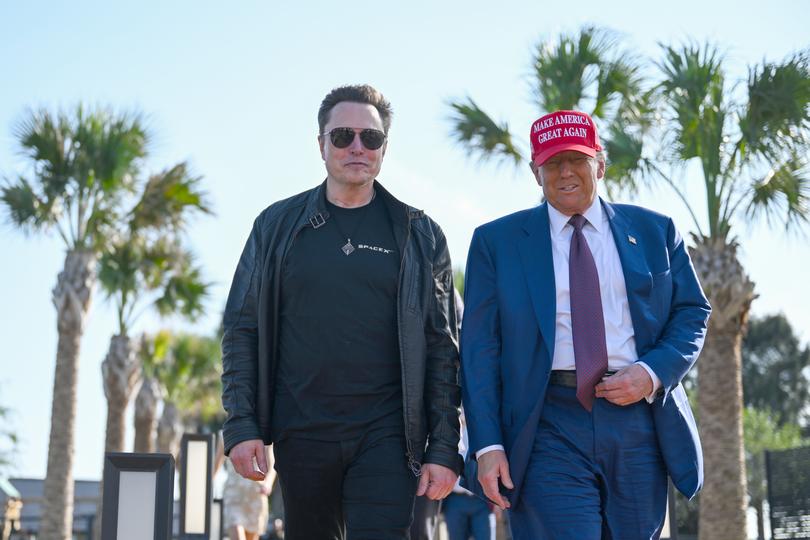ISABELLE MULLEN: What really killed the Albanese Government’s doomed misinformation bill
ISABELLE MULLEN: Elon Musk expertly played on our anxieties about government overreach to protect access to his most valuable product: our information.

Australians are worried about censorship.
And in a weak moment the Albanese Government bowed to pressure, withdrawing its misinformation Bill after Elon Musk claimed free speech was at risk.
The trouble is people believed him.
Sign up to The Nightly's newsletters.
Get the first look at the digital newspaper, curated daily stories and breaking headlines delivered to your inbox.
By continuing you agree to our Terms and Privacy Policy.We’ve invested too much into social media over a long time, and now any attempt to regulate the industry is being misinterpreted as censorship.
Research tells us more than 20 million Australians have a digital identity. That’s almost 80 per cent of our entire population.
We tell our apps everything.
Who we are, how many online friends we have, what we like and dislike, where we eat, exercise and what we buy.
Our information is worth something.
People like Musk have an invested interest in discrediting governments, to ensure their businesses can run without laws and legislation restricting access to their biggest products — us.
The algorithms are not only engineered to keep us there, but to continue making money off us.
We know that Facebook, Instagram, X, YouTube and TikTok are causing harm.
According to research from US mental health organisations, young adults who use social media are three times more likely to suffer from depression than those who don’t.
In 2020, half of young people had been bullied online in Australia.
Anthony Albanese is stuck in an unenviable position.
Whatever the Government tries to do in this space, they run the risk of appearing to have exerted too much control over our lives.
His Government is trying to make social media safer by restricting use to over 16s.
It’s proving to be a tough sell because he can’t seem like he’s advocating for government censorship.
His Government’s misinformation Bill – created with all the best intentions – fell victim to the same test.
It was a hard sell because a government dictating what’s true and untrue is dangerous.
Critics likened the bill to George Orwell’s dystopian novel 1984, a cautionary tale of mass surveillance and a warning about the ways in which truth can be manipulated.
The Prime Minister is damned if he does and damned if he doesn’t.
The Opposition argued that if the Government had the power to filter misinformation online, it could influence elections.
“The Bill gives the communications minister the powers to personally order misinformation investigations and misinformation hearings,” shadow communications minister David Coleman said.

“This is wide open to abuse and an extraordinary power for a minister to hold in a democracy,”
But people should also look at the ways in which social media can influence elections.
Elon Musk’s involvement in the latest US election is testament to that.
X has become a political platform.
Elon Musk and Donald Trump have both built massive followings by claiming to advocate for free speech, while discrediting traditional media.
It is in their best interest to discredit the mainstream media and paint it as a propaganda machine.
Trump’s protestations about “fake news” resonates with people who only want to hear from someone who thinks like them.
The algorithms on social media make it an echo chamber for its users, who are fed information that the app believes they will consume.
There’s no gatekeeper, or team of journalists fact checking. Just endless thought bubbles untried and untested.
So why are we so angry at the Government for wanting to do something about it?
It comes down to this idea of “censorship” and our fears about having opinions stamped out.
It means whatever the Government tries to do in this space, they run the risk of appearing to have exerted too much control over our lives.
And in this brave new world it seems we’re okay with social media companies having it, but not the Government.
